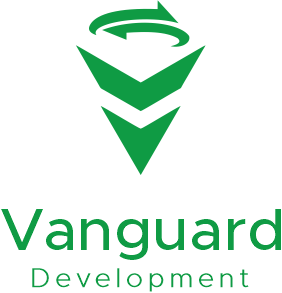The Importance of Due Diligence in Securing Joint Venture Financing
In the realm of commercial real estate development, securing financing can be complex, especially when entering into a joint venture (JV). Joint venture financing is a popular way for developers to secure the capital needed for large-scale projects by partnering with investors who bring additional resources and expertise. However, one crucial step determines the success and sustainability of these partnerships: due diligence.
This article explores the role of due diligence in JV financing, its key components, and how thorough research and analysis can mitigate risk, protect investments, and build a foundation for lasting partnerships.
Why Due Diligence Matters in Joint Venture Financing
In JV financing, two or more parties come together to combine their capital, resources, and expertise to achieve a common investment goal. This collaborative approach can reduce risk, increase project potential, and offer access to new markets. However, without rigorous due diligence, JV partners may face unforeseen financial or legal challenges that can jeopardize the project’s success. Due diligence enables all parties to make informed decisions, set clear expectations, and identify potential risks early in the process.
Conducting thorough due diligence has several benefits:
- Reduces Financial and Legal Risks: By scrutinizing the financial and legal standing of all parties involved, due diligence helps prevent costly issues down the line.
- Establishes Transparency: When each partner fully understands the strengths, weaknesses, and intentions of their counterparts, it fosters a more transparent and trusting relationship.
- Enhances Project Feasibility: Due diligence highlights potential obstacles and market conditions that may impact the project’s success, allowing for proactive strategies to be put in place.
Key Components of Due Diligence in Joint Venture Financing
The due diligence process for JV financing should encompass financial, legal, operational, and market considerations. Below are some critical areas to examine in-depth.
1. Financial Due Diligence
Financial due diligence is essential for evaluating the financial health and stability of all JV partners. This includes:
- Assessing Creditworthiness: Examining credit histories and financial backgrounds to ensure that partners are financially capable of contributing to the venture.
- Evaluating Cash Flow and Liquidity: Analyzing cash flow statements and liquidity levels to determine if partners have the resources to sustain their investment, even if market conditions shift.
- Examining Financial Statements: Reviewing audited financial statements to assess profitability, debt levels, and overall financial health.
- Estimating Required Contributions and Returns: Establishing clear expectations around capital contributions, projected returns, and profit-sharing arrangements is crucial for financial alignment.
2. Legal Due Diligence
Legal due diligence ensures that all partners are protected and comply with regulatory requirements. Important areas of legal review include:
- Verifying Ownership and Titles: Ensuring that property titles and ownership structures are clear and free of encumbrances.
- Reviewing Partnership Agreements: Analyzing partnership terms to clarify responsibilities, contributions, and the distribution of profits or losses.
- Ensuring Regulatory Compliance: Verifying that the project complies with local zoning, environmental regulations, and building codes to prevent legal setbacks.
- Evaluating Dispute Resolution Processes: Outlining dispute resolution mechanisms in the JV agreement ensures there’s a clear process for handling conflicts that may arise during the project.
3. Operational Due Diligence
Operational due diligence involves assessing the capabilities and experience of the JV partners to execute the project successfully.
- Evaluating Partner Expertise: Assess each partner’s experience, industry reputation, and track record with similar projects to ensure a strong operational foundation.
- Reviewing Project Plans and Timelines: Scrutinizing project feasibility, timelines, and construction plans helps prevent delays and identify potential bottlenecks.
- Examining Vendor and Supplier Relationships: Reviewing key contracts and relationships with vendors, suppliers, and contractors is essential for securing a reliable supply chain.
- Risk Management Capabilities: Understanding each partner’s approach to risk management and their plans for handling issues such as cost overruns, labor shortages, or regulatory changes.
4. Market Due Diligence
Market due diligence focuses on external factors that may impact the project’s success, such as market demand, economic conditions, and competitive pressures.
- Analyzing Market Demand: Conducting market studies to gauge demand for the project type, location, and market segment can provide insights into potential profitability.
- Assessing Competitor Landscape: Evaluating existing competitors and potential market entrants helps establish realistic performance expectations.
- Reviewing Economic Conditions: Macro-economic trends, such as interest rates, inflation, and employment rates, can influence the project’s feasibility and should be factored into risk assessments.
- Studying Location Dynamics: Evaluating the project’s location and surrounding infrastructure helps gauge its long-term appeal and potential value.
Due Diligence Best Practices for JV Financing
To ensure a comprehensive due diligence process, follow these best practices:
1. Develop a Due Diligence Checklist
Creating a detailed checklist tailored to the project helps ensure all aspects are covered, from financial audits to site inspections. This systematic approach minimizes the chance of overlooking critical details.
2. Conduct Site Visits and Inspections
A site visit provides firsthand knowledge of the location, property conditions, and neighborhood dynamics. Inspections can also reveal any underlying issues that might impact the project, such as environmental concerns or structural weaknesses.
3. Engage Legal and Financial Advisors
Experienced advisors can offer insights into complex financial structures, legal clauses, and tax implications, helping to prevent costly mistakes. Working with professionals specializing in real estate joint ventures adds an extra layer of protection.
4. Foster Open Communication
Clear and open communication among JV partners is essential. Schedule regular meetings to discuss findings, address concerns, and align on goals to ensure transparency and a shared understanding of risks and expectations.
5. Document Findings and Decisions
Maintaining thorough records of due diligence findings and any decisions made during the process ensures accountability. Proper documentation also allows for easy reference if issues arise later in the project.
Case Study: The Role of Due Diligence in a Successful Joint Venture
Consider a commercial mixed-use development where two firms—one with a strong local presence and the other with capital resources—decided to partner. The due diligence process uncovered several key insights:
- Financial Assessment: The capital partner’s financial statements revealed steady cash flows and ample reserves, confirming their capability to fund the project.
- Market Analysis: A comprehensive market analysis highlighted a gap in demand for residential units in the area, which led to an adjustment in the project’s design and increased potential ROI.
- Legal Review: Due diligence revealed that the property’s zoning was limited to commercial use. By identifying this early, the partners adjusted their plans and successfully applied for a zoning variance to accommodate mixed-use.


Leave A Comment